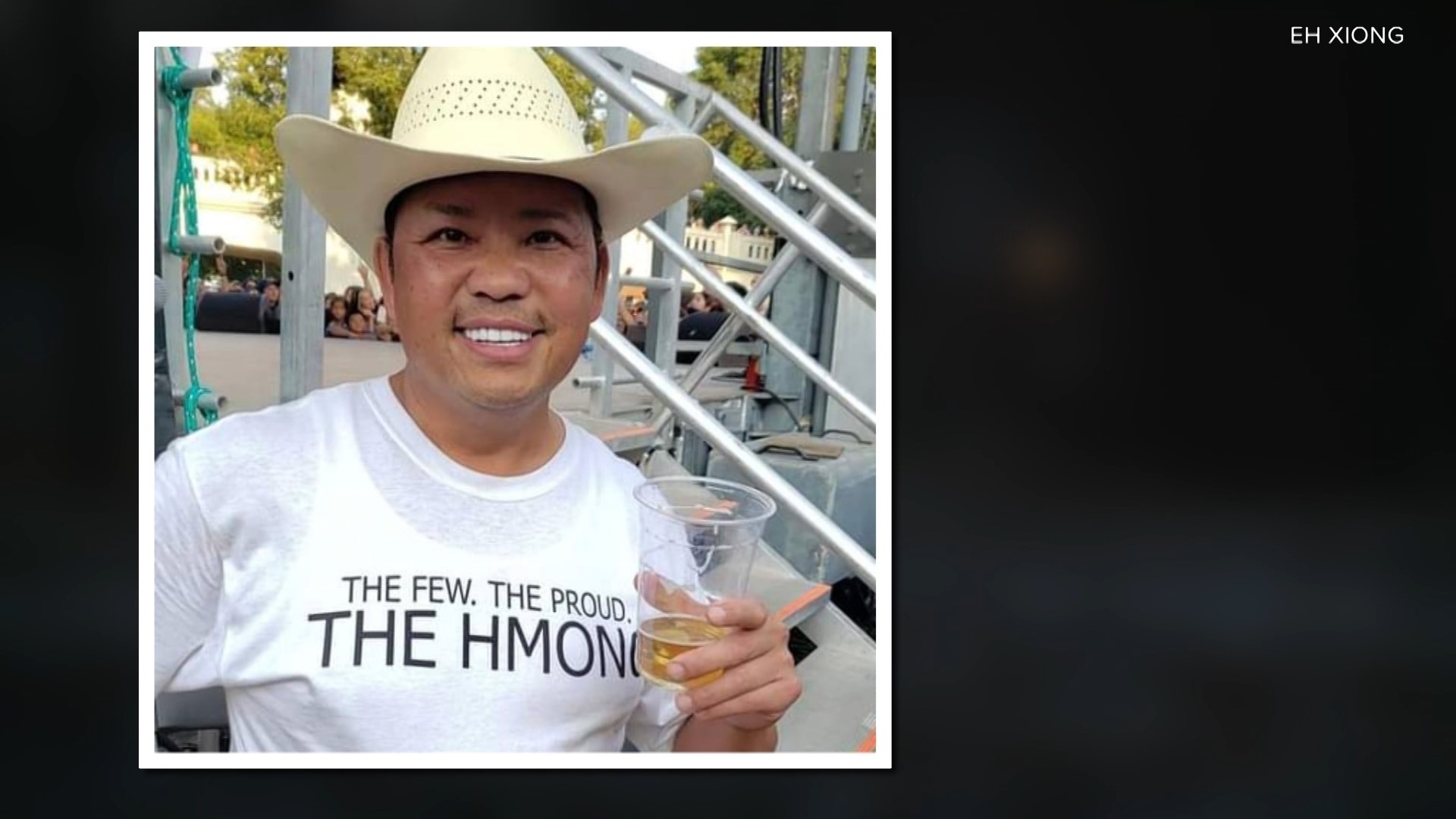SACRAMENTO, Calif. — "Welcoming," "inspirational," and a "role model" are just some of the words members of the Sacramento Hmong community are using to describe Tou Ger Xiong, a well-known Hmong artist, educator and activist who was killed this week while visiting South America, according to his family.
A Colombian newspaper reported he was kidnapped and killed while on a date in the city of Medellín. ABC10's sister station KARE 11 spoke with Xiong's brother, Eh Xiong, who said his family learned of Tou Ger's death on Tuesday morning. Before then, Eh Xiong said he spoke with his brother on Sunday night but wasn't aware of any trouble. By the next morning, Tou Ger wasn't responding to Eh's texts.
Tou Ger Xiong was well known in the St. Paul, Minnesota community, where he called home. He was a refugee from Laos and a born leader, according to a biography website. He was a storyteller who also fought for social justice and was popularly recognized as the nation's first Hmong American comedian. In 1996, he created Project Respectism, a program to promote pride in one's culture and heritage, and performed in both Hmong and English while wearing traditional Hmong clothing to instill cultural pride to his audiences. He was also a 2019 Bush Fellow.
Sacramento Mayor Pro Tem Mai Vang, who knew Xiong personally and organized with him throughout her career, said she was heartbroken by the news of Xiong's death.
"There's a deep sense of loss in our community because of the lives that he touched. He was a force of nature, he had so much love for the Hmong people, for all people," Vang said.
She said she first met Xiong when she was a college student attending a Hmong National Development conference in Minnesota. She recalled how kind and welcoming he was, and how much he inspired young people across the country.
Later on, their paths would cross again as they fought for important issues impacting the Hmong community, such as when activists fought against water ordinances in Siskiyou County they said were discriminatory against and created a humanitarian crisis for Hmong American, Chinese American and other Asian American residents. Vang witnessed other moments that Xiong spoke up against injustices and used his voice in tough but important conversations.
"I remember being on a panel with him after the death of George Floyd, and we had to talk about anti-Blackness within the Hmong community. He stood up and really took up that issue, even though it was really controversial in the Hmong community. I admire his love, his passion for justice," Vang said.
Aside from his advocacy, Xiong was loved for his ability to create a sense of belonging for Hmong Americans through his comedy shows. That was how Shoun Thao, executive director of the nonprofit Hmong Youth and Parents United (HYPU), first discovered him.
"When I first saw one of Tou Ger's shows, I was really young, about 8 or 10... I remember a lot of folks were like, 'Wow, who is this guy? He's eccentric, his smile, his jokes are so funny,'" he said.
For Thao, it was the first time he ever felt seen and heard. It was also one of the first times he saw a Hmong American celebrity that hit the mainstream.
"What (Xiong) did was make the Hmong American experience normalized, funny. It was really nice to see that," he said. "He put us on the map because he went around the whole United States doing these comedy shows about (being) Hmong American. He was the 'it' guy for a while. This was before Sunisa Lee, before Brenda Song."
Thao said he'll always remember Xiong for being one of the "firsts."
"He reached that part and allowed the Hmong community to say, 'We can do it. If Tou Ger can pave the way to do it, we can reach up there,'" he said.
It's a sentiment that Vang shares.
"His legacy is still continuing through the folks he's inspired... For folks who look like him, for folks who look like me, that dream is possible that we can do it," she said. "That's how we continue to honor him and the work that he's done in the community."
Watch more Race and Culture stories: Sacramento organization empowering Native youth, building sisterhood

